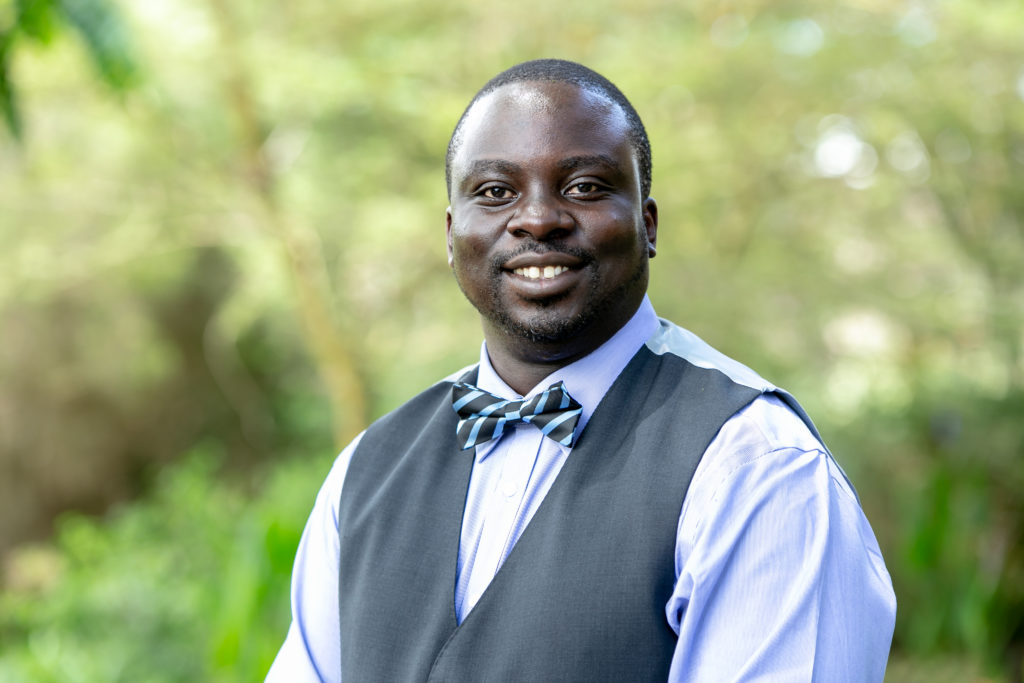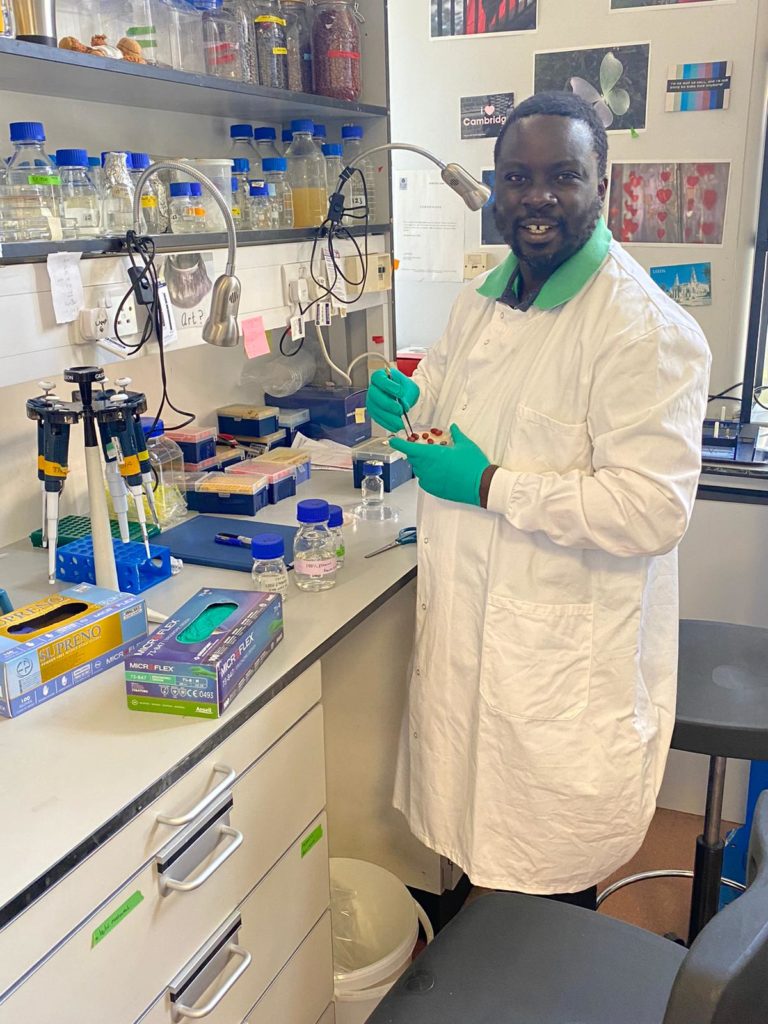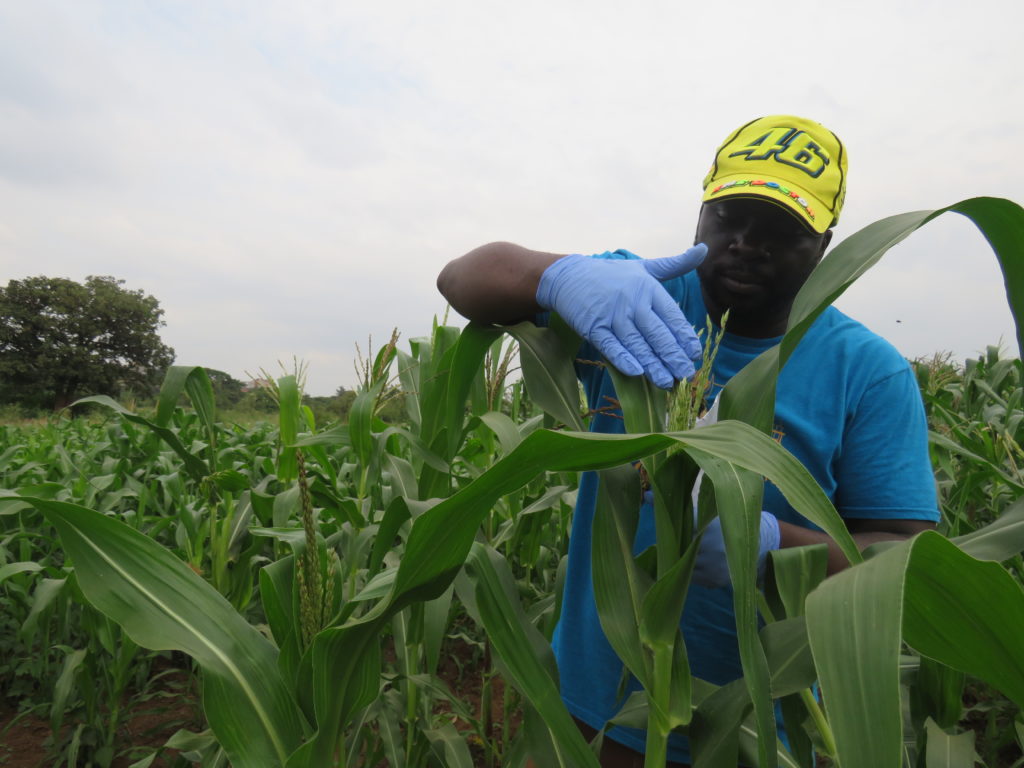Africa's Innovation Is Organic
Thanks for having me. I’m a Kenyan national and a scientist. I’m a husband, proud uncle, and a friend to many people as well! I’m a true son of Africa, born and raised in Kenya.
I’m currently at the University of Cambridge, where I completed my PhD in Plant Scientists. I’m a visiting scientist here now. But my education began in Kenya and that’s where I did most of my formative work.
I’ve wanted to be a scientist for as long as I can remember. I was fascinated by astronauts, by animals, by anything scientific. I remember at primary school we had this deputy headmaster who loved to do experiments, hidden away in a room he called the ‘science room.’ I couldn’t resist peeping!
I studied for an undergraduate degree in medical sciences, and then a master’s degree in immunology. It was while working at the International Livestock Research Institute that I then got interested in plant sciences, which led to the PhD at Cambridge. So, I went from humans, to animals, and then to plants! That gives me a great overall outlook on science.

"I love the continent… I carry Africa in my heart"
Here in the UK, not many people have heard of the ‘common bean.’ But in East Africa, it’s the main source of dietary protein for close to 200 million people. In countries like Burundi and Rwanda, people consume up to their own body weight in beans every year!
So, it’s a really important crop. It’s a big deal. I was awarded a FLAIR Fellowship from the Royal Society and African Academy of Science to explore interactions between this plant, viruses and insects. Plants may be using viruses as ‘booby traps’ for insects, to reduce their pest burden.
Put simply, I love the continent. At one time, the furthest I was willing to go was South Africa! I was not prepared to leave Africa. I carry Africa in my heart.
There are so many opportunities for us to do research that can generate wealth for the African farmer and afford people dignity. Without food, you’re begging for something to eat. There’s something which dies inside when you’re in that situation. That’s one thing I want to help bring an end to. It is not acceptable that Africa cannot feed itself.
We need a coalition of people who share the same ideas for Africa. I’m very excited whenever there is a gathering of African scientists and we can exchange with each other. This is not something anyone can do as an army of one!
"Africa cannot just copy and paste from the West… Africa’s innovation is organic"

Science in Africa can be difficult sometimes. The continent has challenges feeding itself right now – it can be a hard sell to move beyond just putting bread on the table and justify investment in the kind of ‘hardcore’ science that is required to generate new innovations.
The places where people can do their science are quite limited. It’s either government organisations or universities. And when you look at the priorities, it’s usually on getting something to the farmers’ table or to teaching. We’ve still got a huge gap in human capital and a huge under-investment in research in Africa.
Negative assumptions are sometimes made about African research and science, however. It’s assumed that any new ideas or innovation must have been done by someone in Europe first, for example. That kind of conversation needs to change – Africa has a lot to offer.
The ‘brain drain’ is real. But it’s an inescapable consequence of a lack of spaces where people can practice their science in Africa. There are many factors that make it hard for researchers to settle in Africa. I remember failing to find any jobs in Kenya when I returned in 2017 after graduating from Cambridge.
However, at the least we need to utilise the Internet to ensure and e-resources to bring African scientists in the US or UK or wherever, to contribute their knowledge and skills in Africa and for Africa in ways that Africans can understand.
"Millions of Africans are far from home – they need to come back. We need to make a home for them"
We don’t have the same system of protecting innovation through patenting, or investment in ‘Science Parks’ to encourage innovation, as in other parts of the world.
But Africa cannot just copy and paste from the West – or the East, or the South! Africa’s innovation is organic. Here in Cambridge, innovation comes from the lab. But in Africa, it comes from the street! People say, I can make that thing. I can make a radio. I can build a plan, or a hydroelectric car.
But we keep constraining these innovators, tying them up in regulations – you don’t have the right to fly, you don’t have the right to broadcast! If we can understand how African innovation works, rather than trying to replicate the Western model, then we will succeed.

Complete the following sentences..
To me, science represents… “Growth.”
What l’m most proud of is… “My wife.”
The Africa of the future I hope to see is… “A home for me. Millions of Africans are far from home – they need to come back. But they can’t come back
when things are like this. We need to make a home for them.”
Comments are closed.